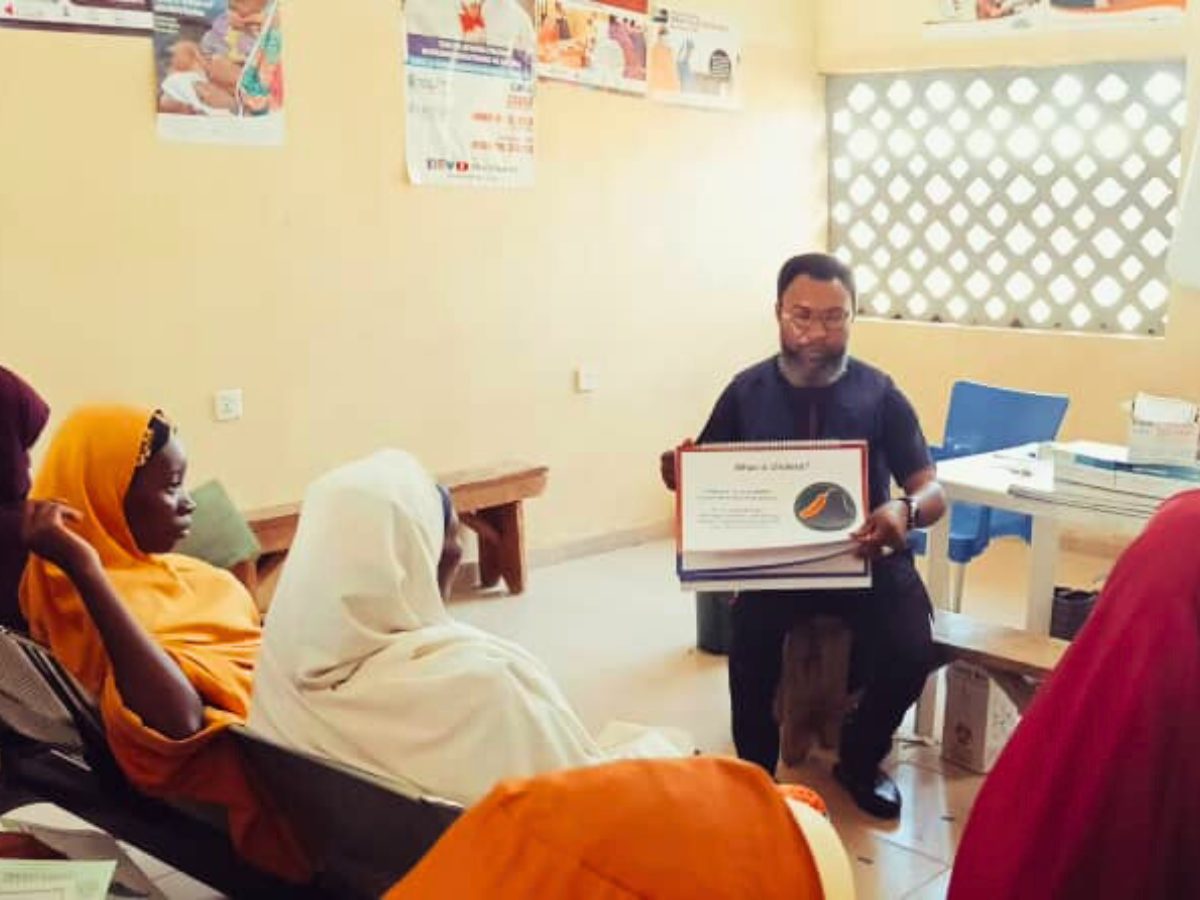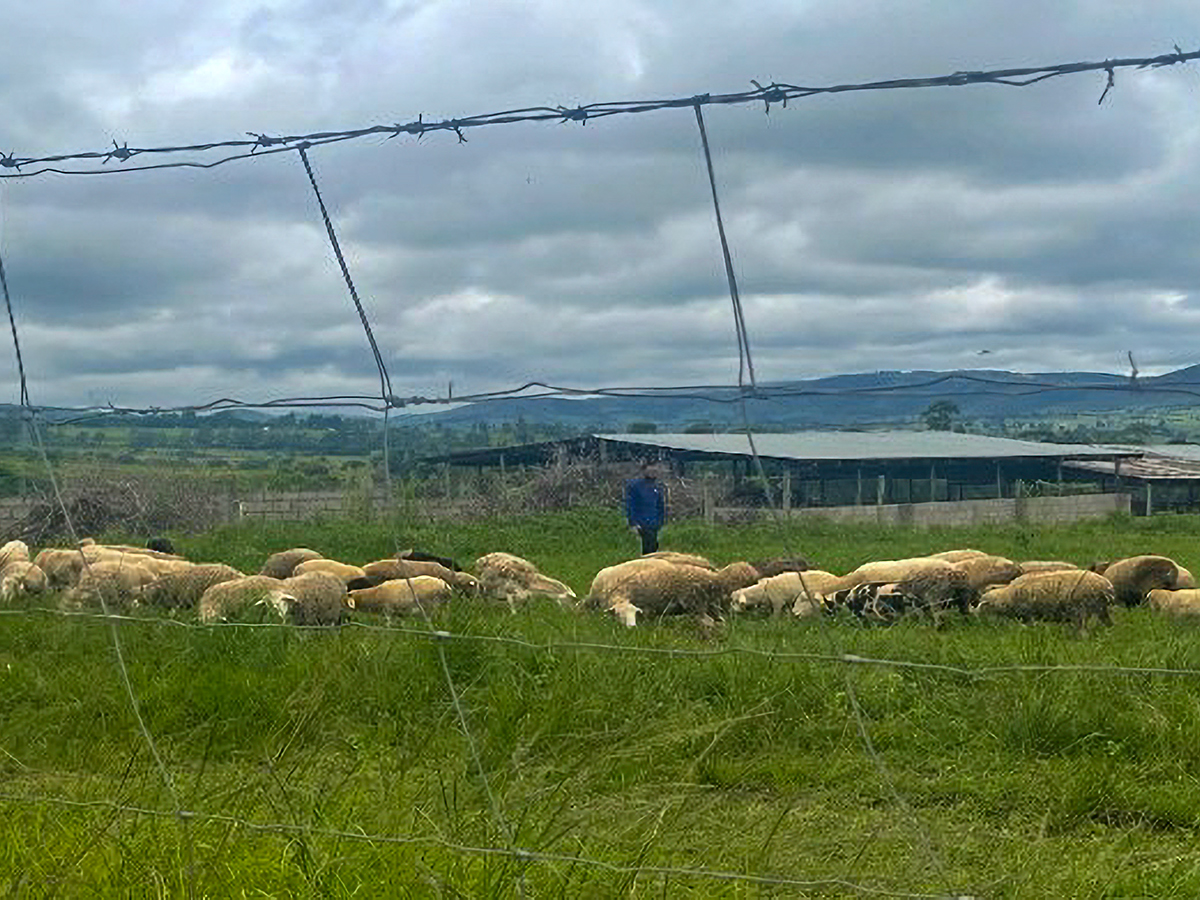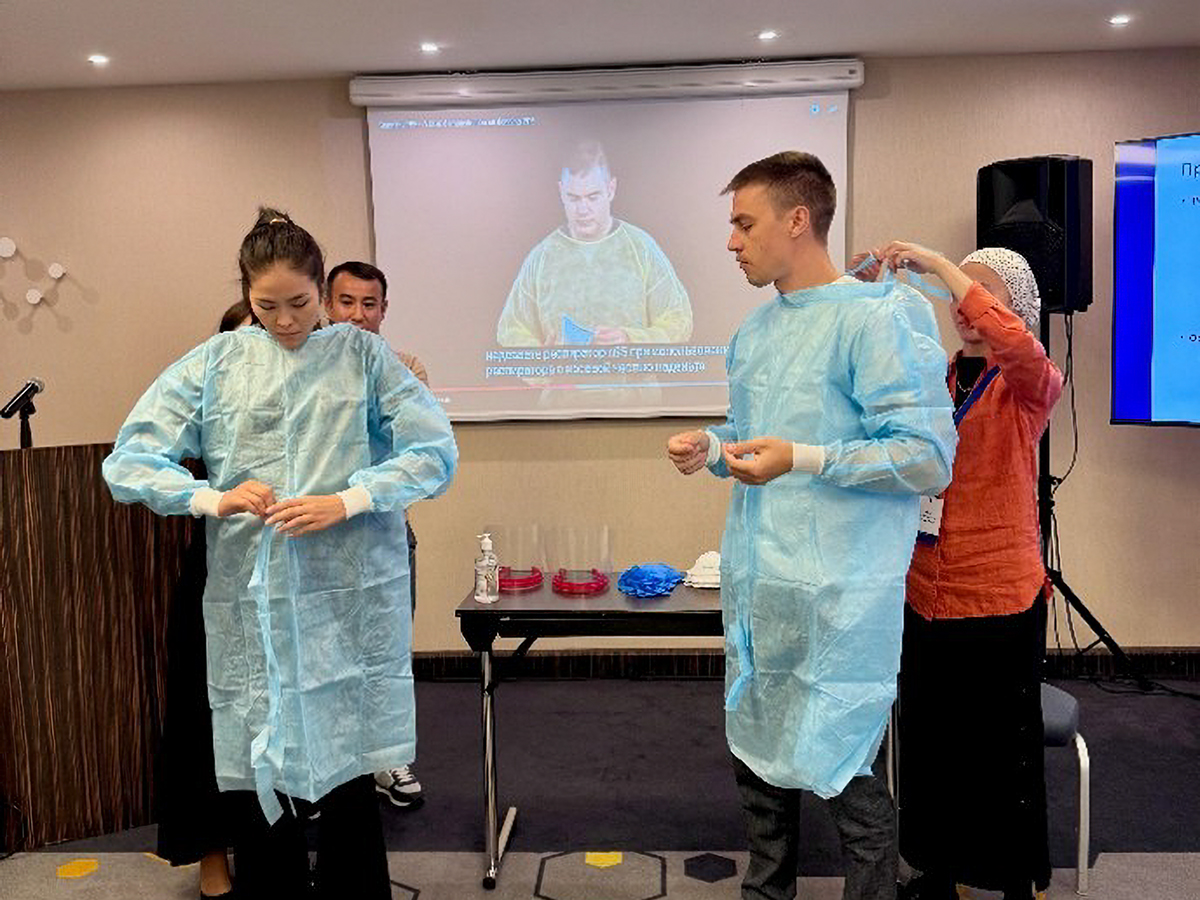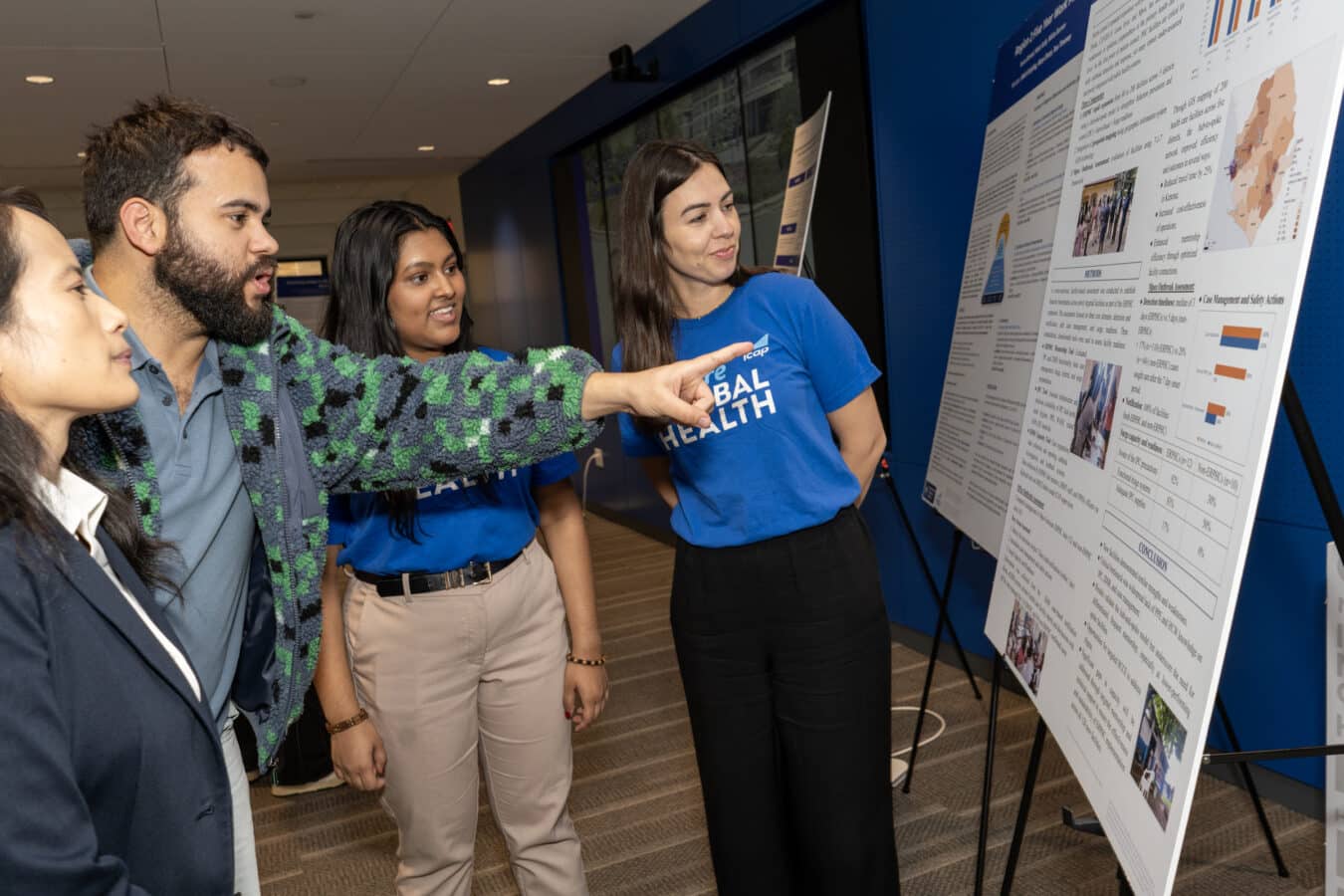In Nigeria, cholera is a significant public health challenge, with outbreaks often linked to poor sanitation, unsafe drinking water, and extreme weather events. Outbreaks often peak during the rainy season from May to October. With increased flooding events throughout Nigeria in 2024, the West African nation observed a sharp increase in cholera-related deaths, with over 10,000 reported cases and 359 deaths compared to the previous year of 3,683 reported cases and 128 deaths.
Beginning in May, ICAP in Nigeria supported the Nigeria Center for Disease Control and Prevention (NCDC) by conducting online polls and surveys to assess knowledge, attitudes, and perceptions (KAP) of cholera among Nigerian communities. This effort, supported by The Global Fund, aimed to inform evidence-based interventions and social and behavior change communication (SBCC) messages for cholera prevention, and ultimately catalyzed the development of an important cholera education guide now utilized across the country by 500 health educators in 22 Nigerian states.
The surveys reached over 16,000 respondents. Findings indicated, for example, regions with rampant cases of open defecation, a leading risk factor for cholera, and common sources of drinking water that had been affected across the country. Furthermore, results from the surveys demonstrated that participants viewed health educators as trusted sources of health information.
Based on results from the surveys, ICAP in Nigeria – in collaboration with the Risk Communications and Community Engagement (RCCE) unit of the NCDC and technical partners – developed a cholera education guide to be used by state and local health educators during community engagement activities. The guide contains information on cholera routes of transmission, prevention methods, and the preparation of Oral Rehydration Solution (ORS), which is used to treat dehydration caused by diarrheal diseases like cholera, and information on which was indicated as a gap in the surveys.
Additional findings were used to inform graphics, among other materials, that were disseminated through NCDC’s social media channels and other platforms, reaching hundreds of thousands of people with vital cholera information.
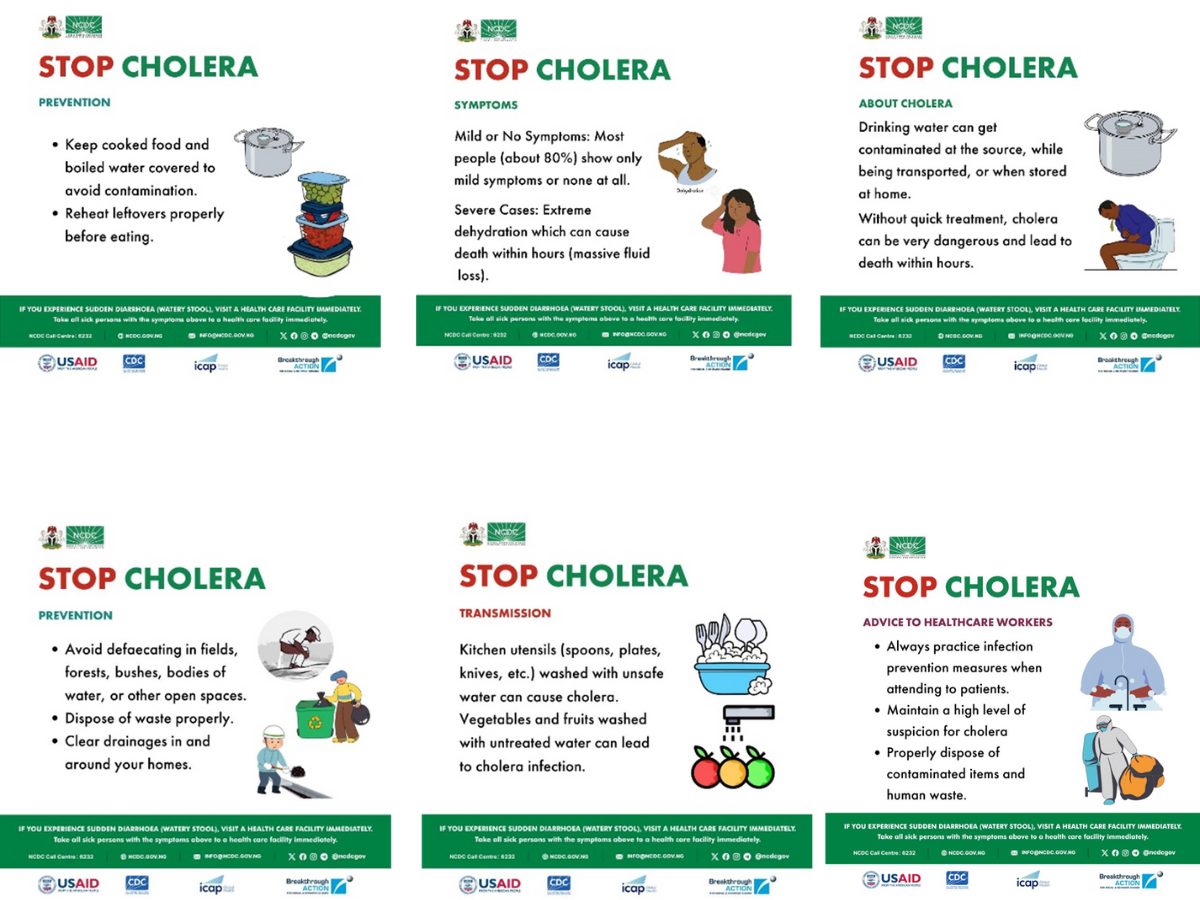
Examples of the messages sent out on Nigeria CDC’s social media channels and communication platforms.
“We developed different communication materials such as comics, graphics, radio dramas, and radio jingles in different disease areas, including for cholera,” said Maryam Abdulrasheed, ICAP in Nigeria’s risk communications specialist. “Following the dissemination of the cholera materials online, the impact of these messages could be seen through the reach, engagement, and comments left on the posts shared. Some people shared the challenges of waste disposal in their communities, which again reiterates the importance of a One Health approach in disease control and prevention.”
In September 2024, Maiduguri, the capital city of Borno State in Northeast Nigeria, was affected by severe flooding, which led to displacement of people and a surge in cholera cases. Representatives from ICAP and the RCCE unit of the NCDC were on ground to support the health promotion officers in the state. The cholera surge was an opportunity for the state health educators to utilize the cholera education guide for community engagement, enabling teams to effectively engage with community members on ways to prevent cholera in the aftermath of the flood.
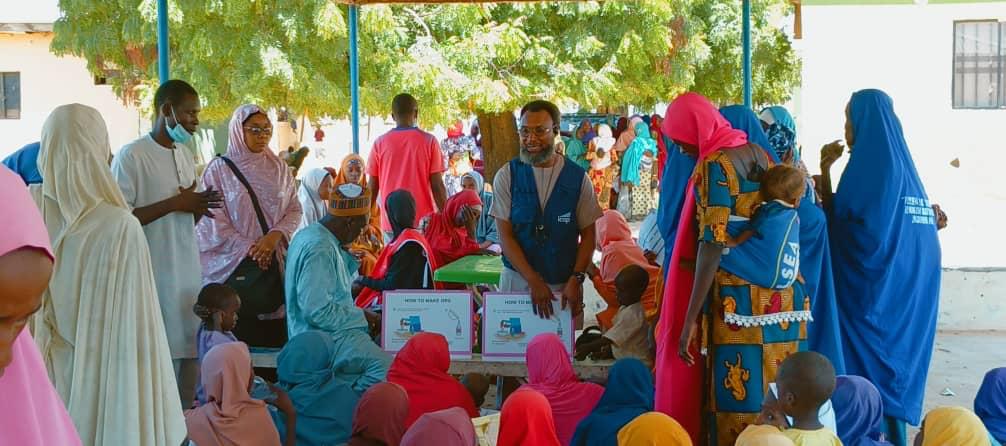
ICAP’s risk communications specialist teaches about the use of Oral Rehydration Solution in Maiduguri.
“Using the cholera desk reference assured us that the correct information was being disseminated consistently by field officers and volunteers,” said Modu Kyari, a state health promotion officer.
“Having a document to quickly refer to is invaluable for field workers who need accurate information without having to search through lengthy documents,” said Ogochukwu Ginigeme, MPH, special projects lead for ICAP in Nigeria.
Findings from the online surveys were delivered to the Ministry of Health and continue to inform the development of state-level action plans to prevent cholera. Cholera remains endemic in certain parts of Nigeria; however, the cholera education guide will serve as an important tool for community health educators during disease outbreaks to sensitize vulnerable and affected communities.
View a video produced by ICAP in Nigeria on the cholera situation in-country and efforts underway to address the disease.
About ICAP
A major global health organization that has been improving public health in countries around the world for two decades, ICAP works to transform the health of populations through innovation, science, and global collaboration. Based at Columbia Mailman School of Public Health, ICAP has projects in more than 40 countries, working side-by-side with ministries of health and local governmental, non-governmental, academic, and community partners to confront some of the world’s greatest health challenges. Through evidence-informed programs, meaningful research, tailored technical assistance, effective training and education programs, and rigorous surveillance to measure and evaluate the impact of public health interventions, ICAP aims to realize a global vision of healthy people, empowered communities, and thriving societies. Online at icap.columbia.edu


